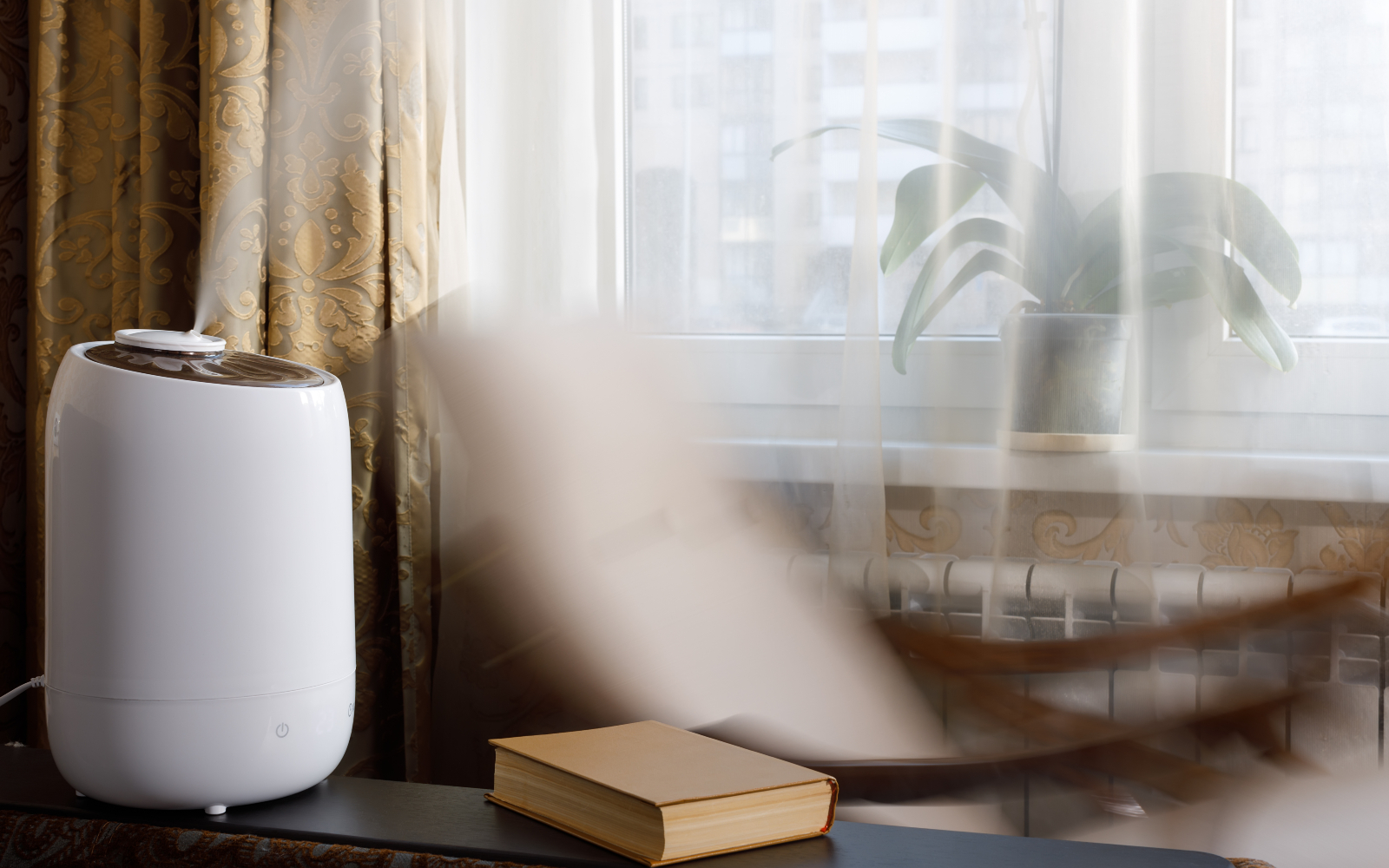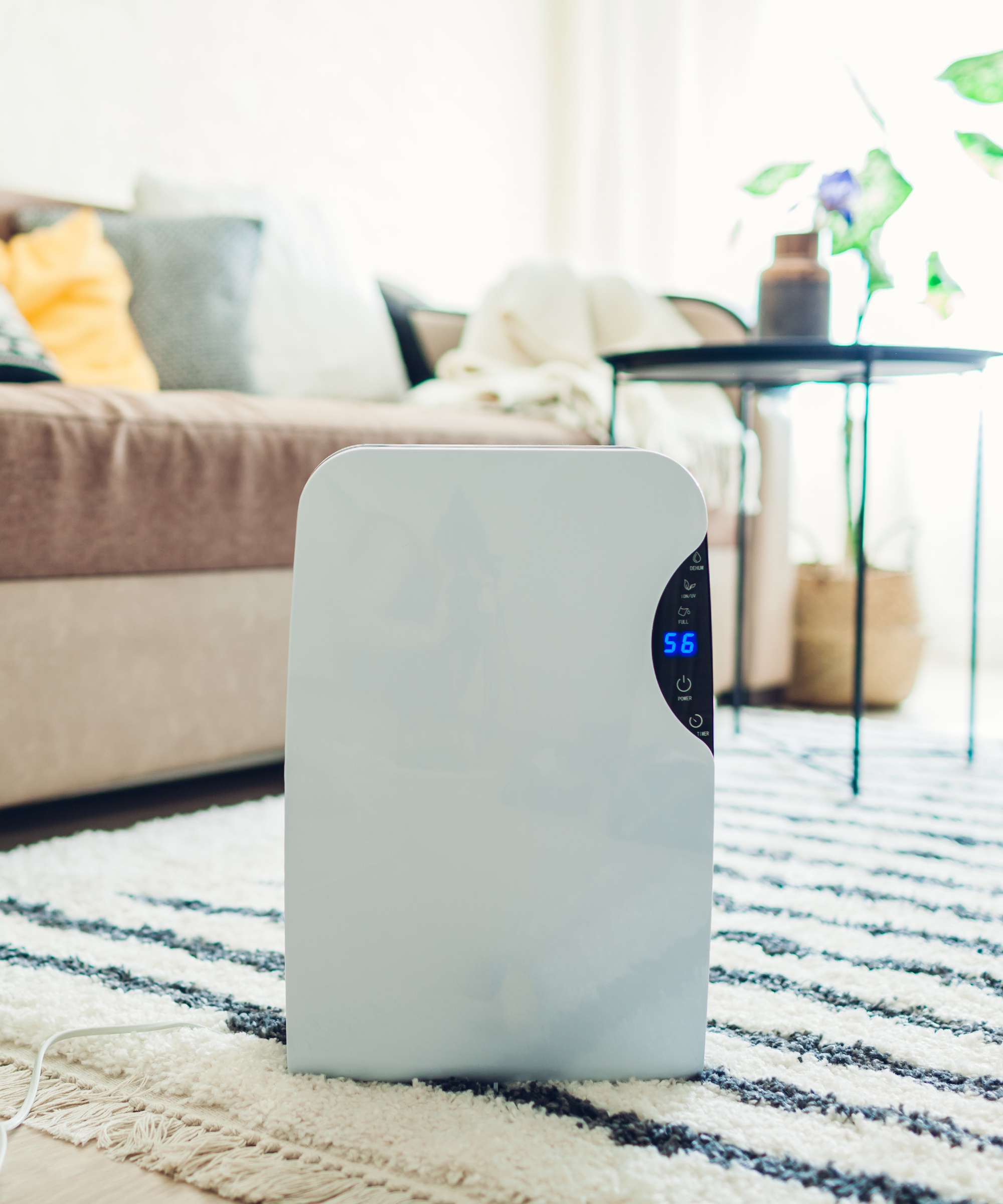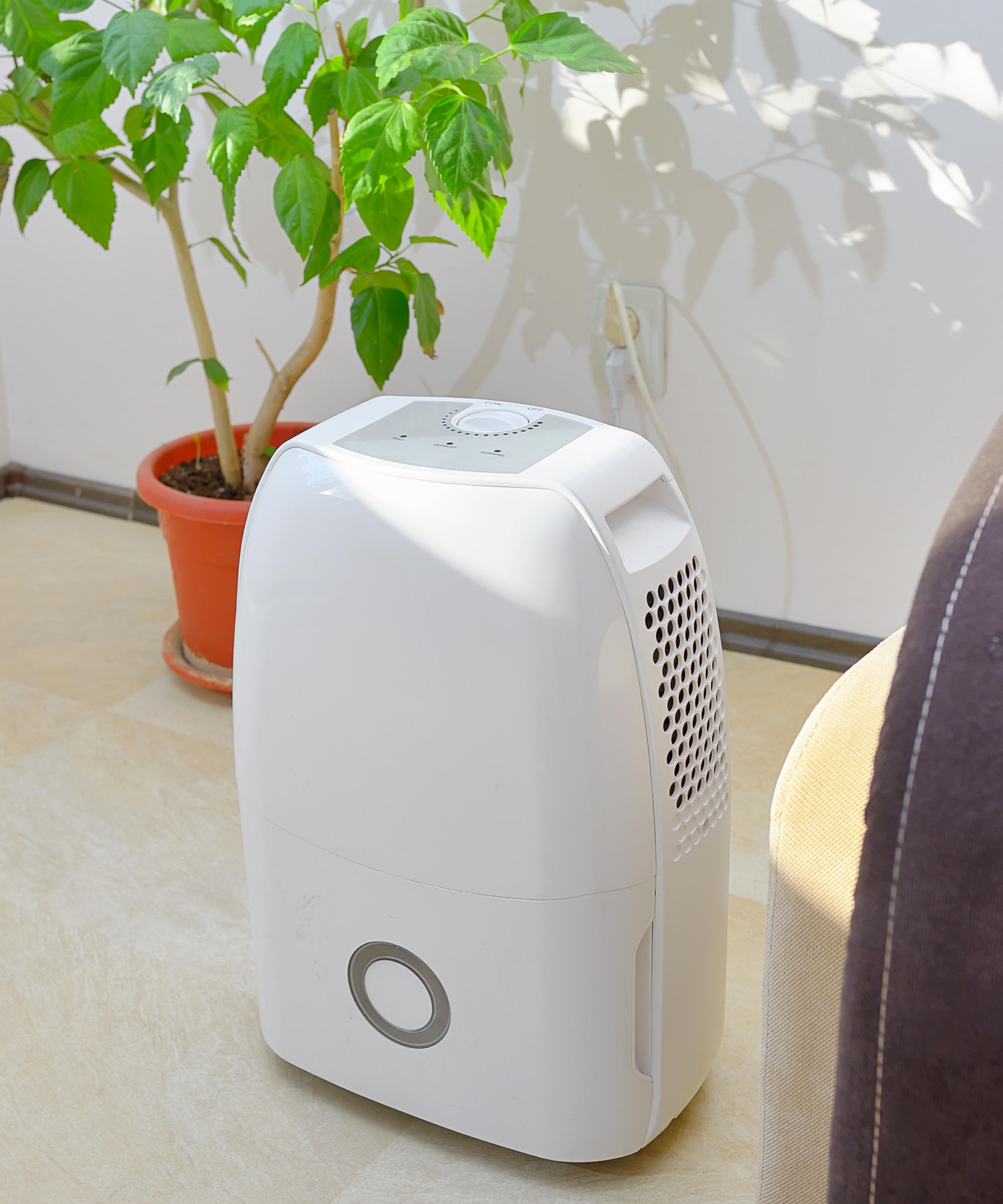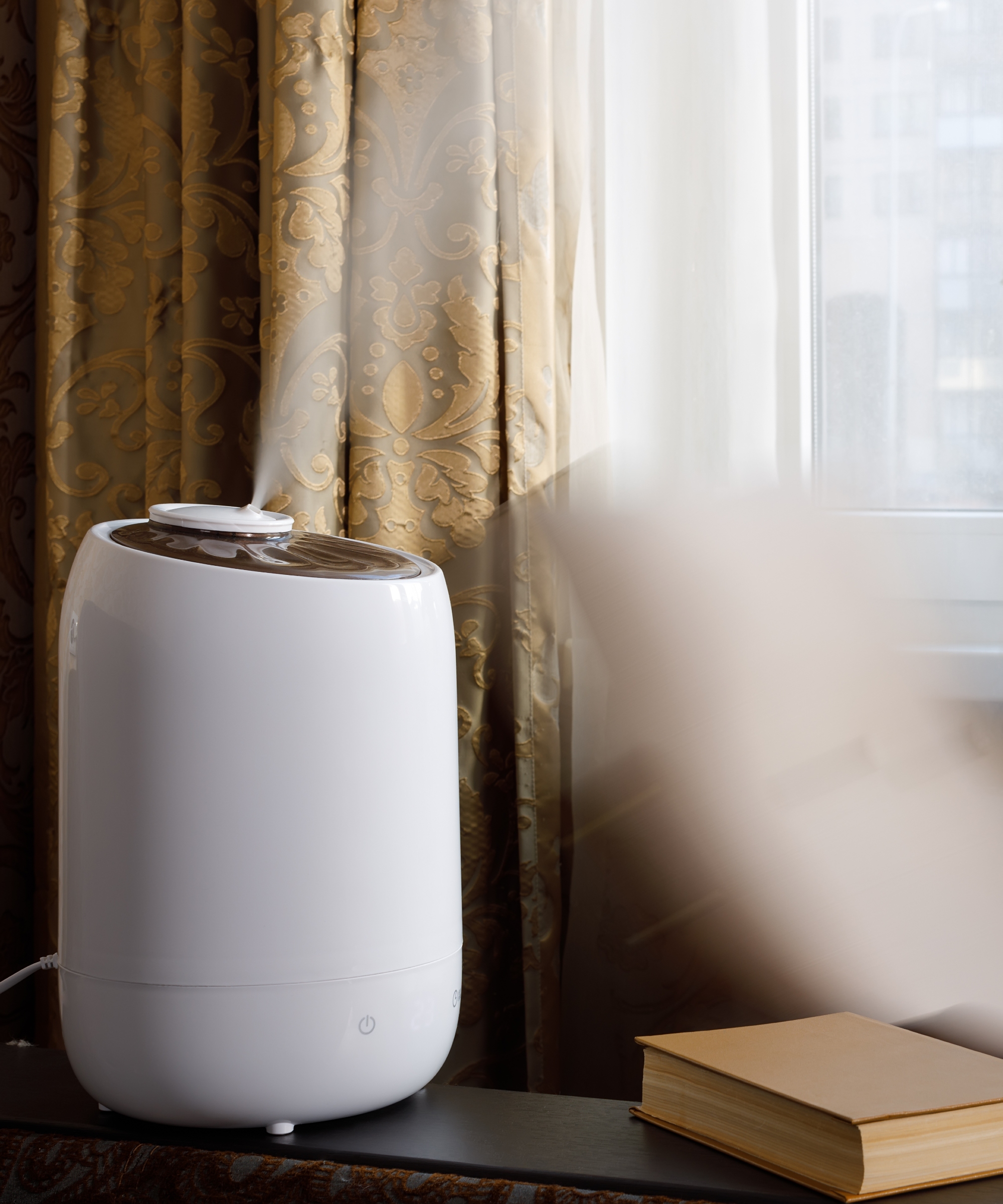How much does it cost to run a dehumidifier? Experts decode the price
This is the real cost of dehumidifying your home – and energy-saving tips that experts want you to know about


How much does it cost to run a dehumidifier? Rising energy costs are drawing attention to the cost of living – and consequently – the price of using essential appliances. Therefore, despite their benefits, it's essential to question the cost of your dehumidifier – and assess how to keep the price at a minimum.
After investing in the best dehumidifier for your home, it's inevitable that you will want to enjoy its benefits. Whether you're wondering how to get rid of condensation inside windows or you want to reduce mold and bacteria in your space, a dehumidifier is the answer. However, there are ways to ensure your space is moisture-free without a hit to your finances.
Here's how much it costs to run a dehumidifier and how the experts keep the costs as low as possible.
How much does it cost to run a dehumidifier?
'The average cost is about $25 per month for an average-size humidifier with 500W, says finance expert Matt Shirley at Splinter Economics. However, the expert suggests that your cost may differ slightly depending on the size of your dehumidifier, how much power the unit draws, your usage, and how much your local utility company charges per kWh.
'For example, a powerful 700W dehumidifier that runs 24/7 in a city with a $0.2 kWh electricity price will cost around $100 a month,' Matt says.

Meanwhile, Sarah Levine from EnviroHome explains that if you see a humidity level to 45% in a Florida home, your dehumidifier may be running continuously – and will consequently be more expensive to run.
'With that being said, dehumidifiers don't have to be high users of energy in your home. Many dehumidifiers are now energy star certified, meaning they follow strict energy performance standards set by EPA,' the expert adds.
Do dehumidifiers use alot of electricity?
Kerry Sherin, a consumer advocate at Ownerly, explains that there is a wide range of wattages for dehumidifiers.
'Dehumidifiers can use up to 250 watts per hour depending on their size,' she says. To work out how much energy your appliance is using, you should look through your humidifier's manual or on the back for the exact watts or amps and volts to calculate your watts. Then multiply amps by volts to calculate watts.
'Every dehumidifier is different. Energy Star humidifiers use less electricity and are more efficient than older humidifiers,' Kerry explains. 'Meanwhile, whole-home humidifiers are much more energy-consuming than portable units.'

How to lower dehumidifier costs
Winter may be coming, but knowing how to cool down a room may remain a concern in your area. This is where (among other benefits) your dehumidifier can come in to help. This is how the experts recommend keeping the costs down.
1. Invest in an Energy Star dehumidifier
Dehumidifiers with Energy Star ratings are the most efficient – so it's important to look out for this rating when choosing the dehumidifier for you.
'If you're purchasing a humidifier, consider the cost of operating the dehumidifier over time,' Kerry says. 'Your running costs will likely be lower over time with an Energy Star dehumidifier.'
2. Use dehumidifiers during winter
When learning how to winterize a house, your dehumidifier may not be at the top of your priority list. However, as Kerry suggests, your can make your room feel warmer by using your dehumidifier strategically this winter – and in such a way that may help you cut your electrical bills.
'It feels warmer in humid air. You can make your home feel warmer by running a dehumidifier simultaneously with your heating system in the winter. During the cold winter months, you can lower your thermostat, which will save you on electrical bills,' the expert says.

3. Keep the humidity down naturally
One of the easiest ways to limit dehumidifier costs is to cut its workload by keeping humidity down before turning on your appliance. Kerry urges you to ensure your kitchen and bathroom extractor fans are working and open the windows after a shower and while cooking. It also helps to keep lids on your saucepans whenever possible.
Should you run dehumidifier in winter?
Yes, as Kerry Sherin, a consumer advocate at Ownerly suggests, using your dehumidifier in winter may help cut energy costs. This is because running your dehumidifier alongside your heating system can make your space feel warmer and therefore help you save on your electrical bills.
Sign up to the Homes & Gardens newsletter
Design expertise in your inbox – from inspiring decorating ideas and beautiful celebrity homes to practical gardening advice and shopping round-ups.

Megan is the Head of Celebrity Style News at Homes & Gardens, where she leads the celebrity/ news team. She has a history in interior design, travel, and news journalism, having lived and worked in New York, Paris, and, currently, London. Megan has bylines in Livingetc, The Telegraph, and IRK Magazine, and has interviewed the likes of Drew Barrymore, Ayesha Curry, Michelle Keegan, and Tan France, among others. She lives in a London apartment with her antique typewriter and an eclectic espresso cup collection, and dreams of a Kelly Wearstler-designed home.
-
 Orange and green is the bold color pairing quietly transforming homes in 2025 – here's 4 reasons why
Orange and green is the bold color pairing quietly transforming homes in 2025 – here's 4 reasons whyInterior designers are making the orange and green combination work wonders – this is how you can too
By Sophia Pouget de St Victor Published
-
 This Michelle-Pfeiffer-approved chair is made of a forebodingly unusual material, opening the debate: Is it a rustic stunner, or a danger to sitters?
This Michelle-Pfeiffer-approved chair is made of a forebodingly unusual material, opening the debate: Is it a rustic stunner, or a danger to sitters?The actress took to Instagram with a chair made of a controversially sharp material – and fans are unsure of how they feel about it
By Sophie Edwards Published